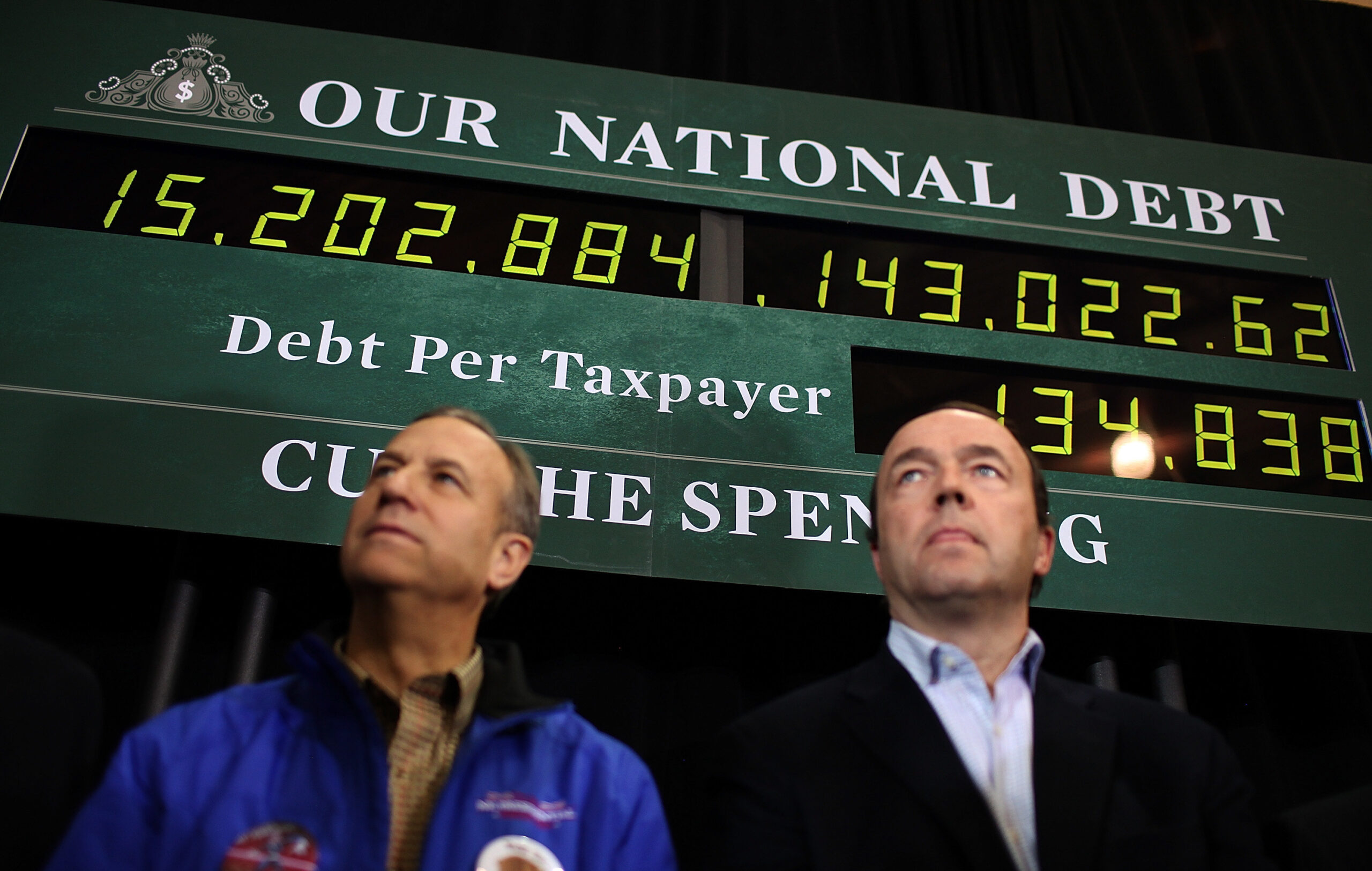
Getty Images
During almost any discussion of legislation in Congress, the national debt will reliably be introduced into the debate. This topic is unavoidable when allocating federal funds for any reason, but especially during budget proceedings. Usually, Republicans voice their concerns over excessive national spending and the effect that it would have on the federal deficit. But what exactly is the national debt and should we be concerned about it?
Essentially, the federal deficit is the amount of debt the United States has — or the amount of money it owes to other entities. These include U.S. federal agencies, state and local governments, foreign governments, and investors. The total national debt as of February 2018 totals to over $20 trillion. Needless to say, this is the highest amount of debt the country has ever had.
Why is the federal deficit so large? The simplest explanation is that the government has spent many years and decades spending more money that it collects in revenue from taxes. But the federal government is very large and has many, many working parts. Contrary to popular belief, China does not own most of the national debt. That title belongs to the Social Security Trust Fund — where your retirement checks come from. In fact, about 30 percent of the national debt is owed to 230 federal agencies. Or the United States owes this money to itself. This situation is a result of shifting money around to different parts of the government through the purchase and sale of U.S. Treasury bonds.
The federal deficit matters because of its potential impact on the economy. With higher debt burdens, economic growth slows. This is a side effect of governmental actions typically taken to deal with the deficit. As interest rises, the government is likely to raise taxes or increase inflation to handle it. Both have a negative impact on investors’ willingness to invest. A higher inflation rate will often result in a higher interest rate, which discourages borrowing. Additionally, high levels of public debt cause concerns over whether the debt could actually be repaid in the future. However, the United States has so far been reliable in paying its bills. In fact, part of the reason America is the country with the highest foreign debt is because U.S. Treasury bonds are seen as the safest investment safest investment. But running up the debt even more puts the country more at risk for not making good on its promises.
An increasing national debt seems to be bad for the national economy, yet fiscal policies do not seem to be changing to resolve the situation. The new tax law implemented in 2018 cuts taxes across the board, but most steeply for businesses and wealthier individuals. Lowering the tax base will further contribute to the national deficit as there will be less money to make interest payments. The pattern continues with the 2018 fiscal year budget proposal from President Trump, which totals to about $4.4 trillion. The proposed programs and spending would add almost $10 billion to the deficit this year and $7 trillion over the next 10 years. This budget size is about the same as the total 2017 fiscal year budget under Obama, but it is an unusual proposal coming from a Republican president. Conservatives have long worked to maintain an image as the party of fiscal responsibility. Increasing the deficit with a big budget like this one does not fit that image.
So, should you be concerned about the national debt? Over the long-term, everyone should be concerned. Slower growth will affect every aspect of the economy. A booming economy encourages investment, which then creates economic opportunities. Lowered incentive from investors can spell trouble. Slower growth can also lead to wage stagnation and fewer jobs being created. To keep the unemployment figure low, America will need more economic growth as more young people enter the workforce.











